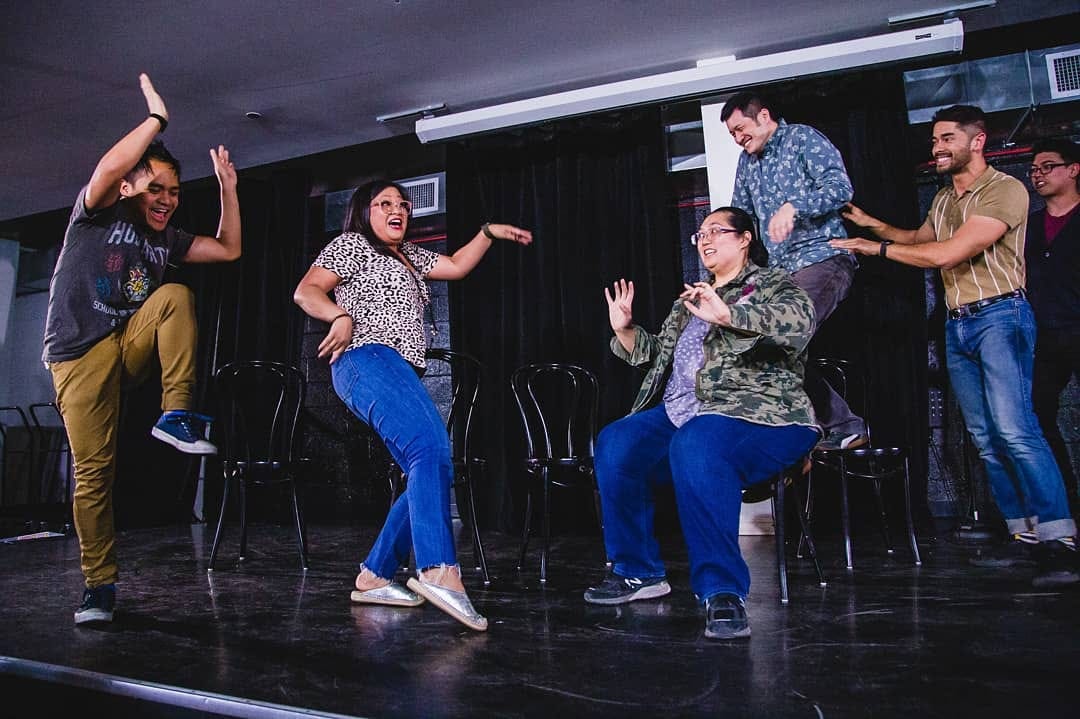Improv, short for improvisation, has become a key component in the training of many actors. Known for its spontaneity and unpredictability, improv is a powerful tool that forces actors to think on their feet, react naturally, and collaborate seamlessly with others. But does improv make you a better actor? This is a question many aspiring and professional actors ask, as they search for ways to enhance their craft.
Acting isn’t just about memorizing lines and delivering them flawlessly. It is about embodying characters, making scenes come alive, and responding in real-time to your fellow actors. Improv teaches exactly these skills, with a focus on unscripted and spontaneous performance. Whether you are a beginner or a seasoned actor, there are numerous benefits to be gained from adding improv training to your repertoire.
At its heart, improvisation is the act of creating scenes, dialogue, or stories in real-time without a script or pre-planned direction. In acting, improv is about embracing uncertainty, thinking quickly, and responding naturally to situations as they unfold. The performer works in the moment, feeding off their scene partners’ actions and words, and building a narrative spontaneously. There is no “right” or “wrong” in improv, which is part of what makes it so liberating for actors.
The core principles of improv include:
- Listening: Listening deeply to scene partners to catch every detail and react appropriately.
- Collaboration: Working together to co-create a scene, even when there’s no script to follow.
- Quick Thinking: Making fast decisions on how to respond in a way that moves the story forward.
- Acceptance (“Yes, And…”): Accepting whatever scenario is presented to you and building on it to keep the scene going.
Each of these principles mirrors skills that are fundamental to acting in general. Actors who excel in improv can think on their feet and trust their instincts, which helps them in traditional acting as well.
History and Evolution of Improv in Theater and Film
Improv has a rich history that dates back to early theatrical traditions. Its formalized roots, however, can be traced to the Italian theater form known as Commedia dell’arte in the 16th century. This form of theater relied heavily on actors improvising dialogue based on set character types and plot outlines, making each performance unique.
In the modern era, improv was popularized by figures like Viola Spolin, who is often considered the mother of improv in the United States. Her exercises and games, which focused on spontaneity, interaction, and play, helped develop the theater games system, which is now a foundation of modern improv techniques.
Improv has since evolved and found its way into television and film. Shows like Whose Line Is It Anyway? brought improv into mainstream entertainment, while directors such as Christopher Guest and Judd Apatow are known for encouraging actors to improvise in their movies, adding a raw, authentic feel to scenes. Today, many acting schools and workshops, such as The Second City and Upright Citizens Brigade (UCB), are dedicated to teaching the art of improv, cementing its place as an essential tool in an actor’s toolkit.

How Does Improv Help Actors Improve Their Skills?
Enhancing Listening and Reaction Skills
One of the most significant ways improv makes you a better actor is by enhancing your ability to listen and react naturally. In traditional acting, you often have the luxury of rehearsing lines and blocking in advance, which can make reactions feel scripted or unnatural. However, in improv, you are forced to listen intently to what your scene partner is saying, as every line, gesture, and action can change the direction of the scene. There are no second takes or opportunities to “prepare” a response—what you deliver must be in the moment and authentic.
This kind of deep listening is crucial in acting, as it allows you to truly engage with your scene partner. Rather than waiting for your turn to speak, improv encourages active engagement with the other person’s lines. This results in more dynamic, believable interactions on stage or screen.
By enhancing reaction skills, improv also helps you develop more genuine emotional responses. For example, when an actor improvises, their reactions tend to be more instinctual and reflective of real-life emotions, as they are not trying to fit a pre-conceived idea of how the character should respond. This ability to react authentically can significantly improve performance, especially in live theater, where actors must adapt to the energy of the audience and fellow performers.
Building Confidence on Stage
One of the most common challenges for actors, particularly those new to the craft, is a lack of confidence on stage. Fear of forgetting lines, making mistakes, or losing the flow of a scene can make even experienced actors nervous. Improv, however, teaches you to embrace mistakes and turn them into opportunities. The concept of “failing forward” is central to improv—mistakes are not seen as errors but as unexpected developments that can be built upon.
This approach builds confidence by helping actors understand that there is no “wrong” way to perform in an improv scene. The pressure of perfection is removed, allowing actors to experiment and take risks without fear. Over time, this mindset carries over to traditional acting, where actors often learn to embrace uncertainty rather than fear it.
Consider a scenario where an actor forgets a line during a live performance. An actor with improv experience would be more likely to confidently adjust, using their improv skills to keep the scene moving, rather than freezing or breaking character. This adaptability directly boosts performance under pressure, giving actors the confidence to handle unexpected moments.
Improving Quick Thinking and Adaptability
In the world of acting, adaptability is key. Directors often make last-minute changes to scenes, fellow actors might forget lines, and in live performances, anything can happen. Improv training helps actors develop quick thinking and adaptability, two skills that are crucial for navigating these unpredictable situations.
When actors practice improv, they are constantly faced with new and unexpected scenarios, forcing them to think and respond quickly. This quick-thinking ability translates well into traditional acting, where an actor may need to adjust their performance on the fly due to changes in the script, direction, or co-actor’s performance.
A good example of improv’s influence in this area comes from film production, where scripts can often evolve during shooting. Directors such as Judd Apatow and Taika Waititi are known for allowing actors to improvise during scenes, leading to some of the most memorable moments in their films. This level of adaptability can only be achieved through extensive practice in improvisation, as actors must be comfortable with shifting narratives and embracing unexpected twists.
To illustrate this further, consider the famous scene in The Dark Knight where Heath Ledger’s Joker claps in the prison cell. This moment was completely unscripted, and Ledger’s ability to improvise and adapt to the moment added depth to his character. This is just one example of how quick thinking can elevate a performance.
Improv sharpens your ability to react swiftly and naturally, boosting your overall flexibility as an actor. These skills are invaluable in both live performances and on film sets, where change is a constant.

Can Improv Help You Become More Creative?
Fostering Creativity Through Spontaneous Storytelling
One of the most well-known benefits of improv is its ability to foster creativity. In improv, actors are required to create characters, stories, and entire scenes on the spot, without any script to guide them. This spontaneous storytelling pushes actors to think creatively and step outside of their comfort zones, often leading to unique and unexpected outcomes. The lack of a predetermined structure encourages actors to explore new ideas, tap into their imagination, and let go of rigid expectations.
Improv exercises often begin with a single suggestion from the audience or a fellow actor, which can range from a simple word to a complex scenario. From that starting point, the actor must build a scene, invent dialogue, and create a narrative arc—all in real-time. This process not only strengthens the actor’s creative thinking but also helps in developing their ability to craft stories, characters, and emotions on the fly.
For example, an improv actor may receive the prompt “a lost traveler in an unknown city” and be asked to create a scene from scratch. The actor would need to quickly decide:
- Who is this traveler?
- What is their background and motivation?
- How do they interact with their surroundings and the people they meet?
This kind of creative challenge is invaluable in helping actors think more deeply about character development and story construction. The more they practice improv, the better they become at generating fresh, interesting ideas in other areas of their acting.
Strengthening Character Development
Improv plays a significant role in character development, allowing actors to experiment with different traits, behaviors, and personalities that they might not explore in a scripted environment. In improv, actors are free to inhabit characters without the constraints of a predetermined plot or dialogue, giving them the chance to discover new facets of their character organically.
Through improv exercises, actors can practice building complex characters from the ground up. This process often involves trying on different personas—such as a shy introvert, a confident leader, or an eccentric artist—and exploring how these characters respond to various situations. These character-building exercises can then be applied to more structured performances, helping actors bring greater depth and authenticity to their roles.
Consider the case of Robin Williams, who was famously known for his improvisational brilliance. Williams often used improv to develop his characters, whether in films like Mrs. Doubtfire or in stand-up comedy. His ability to switch between different characters quickly and believably was a result of years of improv experience. By honing these skills in unscripted settings, Williams became adept at bringing vibrant, unpredictable energy to every character he played.
Another notable example comes from Saturday Night Live (SNL), a show that relies heavily on improv. Many SNL cast members, like Tina Fey and Bill Hader, have used improv to shape their iconic characters, often improvising lines or entire scenes during live broadcasts. The creativity required in these moments has helped actors develop characters that are memorable and layered, showing just how powerful improv can be in the world of character creation.
Key Benefits of Improv for Creativity and Character Development
| Benefit | Description |
|---|---|
| Spontaneous Creativity | Encourages actors to think on their feet and create stories in real-time. |
| Freedom to Experiment | Offers actors the opportunity to try out different character traits without fear of failure. |
| Deepening Character Depth | Helps actors discover new facets of their characters organically. |
| Building Storytelling Skills | Develops the actor’s ability to craft narratives without a script. |
Overall, improv training allows actors to access parts of their creativity that might otherwise remain untapped. The more comfortable they become with the improvisational process, the more easily they can apply that creativity to scripted performances, enriching their portrayal of characters and adding depth to their acting.